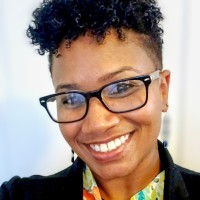In a room of DEI professionals, practitioners, and passionate supporters, one theme filled the air: Despite some resistance and opposition, the work of DEI continues and is very much alive.
What’s more, there is an onus and responsibility for doing the work of DEI, which is to essentially "teach people how to treat people," especially those who differ from them. This work will always exist as this lesson is continually learned and relearned.
It’s a lesson that we reviewed at a recent meeting of the Florida Diversity Council in Tampa. At the event, a panel of DEI and HR leaders from such companies as FIS Global, Ricoh, Orlando Magic and Raymond James Financial shared best practices for Diversity, Equity and Inclusion. The talk, the “Business of DEI,” focused on the importance of accountability, metrics, and the bottom line of DEI.
Towards a More Inclusive Workplace
As we at Genesis10 and New Journey embark on an exciting expedition to cultivate a welcoming and inclusive workplace where a diverse population of dynamic talent thrives, we recognize that events like this can provide a wonderful opportunity to bring additional perspectives. In fact, some insights shared at this event may prove valuable to our employees and our DEI journey.
 |
The work of diversity, equity, and inclusion is at a reflection point, specifically a "refocusing" point. After the murder of George Floyd, businesses rushed to the call of DEI work. However, things are shifting. In these times, to be sustainable and truly impactful DEI goals, initiatives must align with business goals, objectives, and priorities. DEI cannot operate as a standalone function, but each effort should integrate into the greater whole to achieve a sustainable impact beyond superficial measures. It is essential for organizations to find ways to re-position their efforts to leverage diversity, equity, and inclusion to correlate, support and drive toward organizational goals. |
 |
Sustainable DEI efforts focus on people, and the people case fuels the business case. Still, adjustments are needed. The line between inclusivity and exclusivity can be blurry, but “DEI is for everyone and about everyone.” One panelist shared the quote “a rising tide, lifts all the boats.” This is the general aim of DEI, to lift everyone. Yet, organizations must do the work to ensure they provide options and consider the invisible dimensions of diversity to help all employees find a sense of belonging. These efforts then need to be built into processes, policies, and procedures to make meaningful changes in workplace behaviors, actions, and outcomes for all. This provides a foundation for DEI work that endures. |
Ultimately the Business of DEI event was an amazing opportunity to learn from the minds of DEI practitioners who have been doing the work for years or even decades. Their wisdom and valuable insight helps to keep the work of DEI moving forward. As we continue to grow in our DEI journey, we at Genesis10 and New Journey are committed to leveraging these valuable experiences to steward our employees well and to create a workplace where everyone feels welcome and celebrated.



